Keynotes & Lectures
(in alphabetical order)
Keynotes
| Peter Keller: The Psychology and Neuroscience of Rhythmic Interpersonal Coordination |
| MARCS Institute for Brain, Behaviour and Development Western Sydney University, Australia |
|
Peter Keller holds degrees in Music and Psychology from the University of New South Wales in Australia. He is currently Professor of Cognitive Science and leader of the ‘Music Cognition and Action’ research program in the MARCS Institute for Brain, Behaviour and Development at Western Sydney University. Previously, he was at Haskins Laboratories (USA) and the Max Planck Institute for Human Cognitive and Brain Sciences (Germany). Peter has served as Editor of ‘Empirical Musicology Review’ and is currently an Associate Editor at ‘Music Perception.’ His research examines the behavioural and brain bases of human interaction in musical contexts. |
| Elizabeth Klerman: It’s About Time: Sleep and Daily Rhythms |
| Harvard Medical School, USA |
|
Dr. Klerman received her Bachelors degree from MIT and her MD and PhD degrees from Harvard University. She completed post-doctoral work in at Tokyo Genki University in Tokyo and Brigham and Women’s Hospital in Boston. At Massachusetts General Hospital, Brigham and Women’s Hospital, and Harvard Medical School, her areas of research are (i) the application of circadian and sleep research principles to normal and pathophysiologic states and (ii) mathematical analysis and modeling of human circadian, sleep, and neurobehavioral mood and performance rhythms. She also is active in teaching and mentoring in patient-oriented research for medical school students, fellows, and junior faculty. |
Lectures
| Birgitta Burger1 und Timo Fischinger2: Where's the Downbeat? Beat Embodiment to Reggae and Techno |
| 1University of Hamburg and 2University of Music Frankfurt, Germany |
|
In this study, we experimentally investigate dance behaviour to reggae and Birgitta Burger is currently a postdoctoral researcher in the ERC-Project SloMo at the University of Hamburg, Germany. She is interested in the role of the body in production, perception, and understanding of music and focusses her current research on music-induced movement, synchronization, and entrainment. In particular, she investigates the embodiment of temporal, rhythmic, and expressive aspects of music. Furthermore, she is co-developing Mocap Toolbox, a Matlab Toolbox for visualizing and analyzing motion capture data.
|
| Sofia Dahl: Movement and Timing Control in Music Performance |
| Aalborg University Copenhagen, Denmark |
|
Sofia Dahl holds a PhD in Speech and Music communication from KTH, Royal Institute of Technology, Sweden. As associate professor at Aalborg University, campus Copenhagen, her primarily research field is embodied music cognition but her work spans disciplines such as psychology, neuroscience, music performance and music acoustics. Being a drummer, she has a special focus on rhythmic movements and their link to our perception and control of timing and tempo. Her research includes studies of movements and timing in drumming, perception of timing and rhythm, and expressivity in players’ movements. |
| Matthias Echternach: How Singers Deal With Precision in Rhythmics |
| Division of Phoniatrics and Pediatric Audiology, Department of Otorhinolaryngology, Munich University Hospital (LMU), Germany |
|
Matthias Echternach is professor for Phoniatrics and Pediatric Audiology, Munich University (LMU). His scientific interests include the fields of vocal registers and stage fright in singers. Echternach received the Research Award of the German Society of Musicians’ Medicine, the Gerhard Kittel Award from the German Society of Phoniatrics and Pedaudiology and the European Phoniatrics Voice Award. He is member of the editorial boards of the Journal of Voice and Logopedics Phoniatrics Vocology. Echternach had a classical singing education by Peter Sefcik and Winfried Toll. He is member of different internationally recognized vocal ensembles such as the Kammerchor Stuttgart. |
| Werner Goebl: Shaping Musical Ensemble Performance: How Ensemble Musicians Come Up with a Shared Interpretation |
| Department of Music Acoustics – Wiener Klangstil (IWK) and University of Music and Performing Arts Vienna (mdw) |
|
Werner Goebl is Professor of Music Acoustics and Performance Science at the Department of Music Acoustics – Wiener Klangstil (IWK) of the mdw – University of Music and Performing Arts Vienna, with a master in systematic musicology and psychology from the University of Vienna, a PhD in systematic musicology from the University of Graz, and a master in piano chamber music performance from mdw. His current research interests include motion and eye gaze analysis in musical ensemble interaction (current project “Togetherness in Music Ensembles”), acoustics and ergonomics of the piano action, and music informatics and digital approaches to piano rehearsal. https://iwk.mdw.ac.at/goebl/ |
| Oliver Margulies: Synchronicity of Muscle Activation, Perceived Effort and Compensation Movements in Violinists |
| Institute for Music Research, Zurich University of the Arts, Switzerland |
|
As a violinist and violist, Oliver Margulies pursues an orchestra and chamber music career. A certified Dispokinesis teacher, he also earned a MAS degree in Music Physiology (ZHdK) and a PhD degree in Scientific Music Pedagogy (KUG-ZHdK). He teaches at the Zurich Music School and Conservatory and has established its musicophysiological curriculum and counseling offers. He is co-founder of the Zurich Centre for Musicians’ Hands, has developed the musicophysiological curriculum of the Vorarlberg State Conservatory and holds positions as a lecturer, research associate and assistant in the Music Physiology, Preventive and Musicians’ Medicine Section of the Zurich University of the Arts. |
| Rebecca Schaefer: Moving to Our Inner Music: Supporting Movement Learning and Performance With Imagery |
| Leiden Institute for Brain and Cognition, Leiden University, The Netherlands |
|
Rebecca Schaefer is an associate professor at the Institute of Psychology, Health, Medical and Neuropsychology unit. Her primary research interests are the neuroscience of moving to music, music performance and music imagination, aiming to apply these findings to rehabilitation settings. She has received MSc's in Clinical Neuropsychology and Music Cognition from the University of Amsterdam, The Netherlands, and Keele University, UK, respectively, and a PhD from the Donders Institute for Brain, Cognition and Behavior of Radboud University Nijmegen, The Netherlands. In her research, she makes use of brain imaging (EEG, (f)MRI), neuropsychological testing and motion registration. |
| Jan Stupacher: “A Groove Will Make You Move”: Auditory-motor Interactions in Musical Activities |
| Center for Music in the Brain, Aarhus University, Denmark |
|
Jan Stupacher is a postdoctoral researcher at the Center for Music in the Brain at Aarhus University. He is funded by an Erwin Schrödinger Fellowship from the Austrian Science Fund FWF. His research covers rhythm perception, sensorimotor synchronization, social interaction in musical contexts, and the concepts of groove and flow in music. During his doctoral studies in psychology at the Section Neuropsychology, University of Graz, Jan was a fellow of the Austrian Academy of Sciences ÖAW. In 2017, he received the ESCOM Young Researcher Award from the European Society for the Cognitive Sciences of Music. |
| Clemens Wöllner: Synchronizing With Music Changes Our Sense of Time |
| University of Hamburg, Germany |
|
Clemens Wöllner is Professor of Systematic Musicology at the University of Hamburg. He and his team currently work on the five-years research project “Slow motion: Transformations of Musical Time in Perception and Performance”, funded by the EU. Further current research topics include joint actions and empathy in jazz duos, attention and working memory in musicians, and prototypical musical gestures. He is Vice President of DGM, and serves on the editorial boards of Musicae Scientiae, Psychology of Music, and Music Performance Research. His recent book "Body, Sound and Space in Music and Beyond" was published by Routledge. |


-Angelika-Leuchter%2C-WissenschaRskolleg.jpg) Skill domains including musical ensemble performance, dance, and some team sports require rhythmic actions to be coordinated in groups. I will present research findings on behavioural and brain processes—from sensory-motor to social—that contribute to individual differences in this ability.
Skill domains including musical ensemble performance, dance, and some team sports require rhythmic actions to be coordinated in groups. I will present research findings on behavioural and brain processes—from sensory-motor to social—that contribute to individual differences in this ability.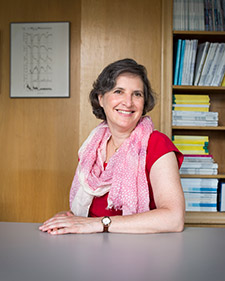 Internal biological rhythms influence all aspects of our physiology. I will describe the daily "circadian" rhythms in sleep, mood, metabolism, and performance as well as the rhythms within a sleep episode.
Internal biological rhythms influence all aspects of our physiology. I will describe the daily "circadian" rhythms in sleep, mood, metabolism, and performance as well as the rhythms within a sleep episode.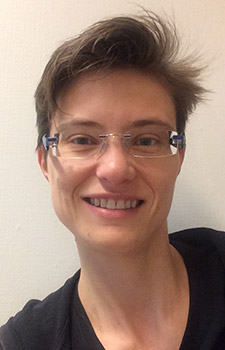 techno music, both when dancing alone and in pairs. The data collection takes place in the ArtLab of the MPI for empirical Aesthetics in Frankfurt, under conditions as naturalistic and realistic, yet as controlled as possible.
techno music, both when dancing alone and in pairs. The data collection takes place in the ArtLab of the MPI for empirical Aesthetics in Frankfurt, under conditions as naturalistic and realistic, yet as controlled as possible.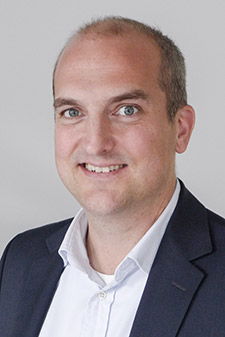 Timo Fischinger is currently working as a lecturer in music psychology and systematic musicology at the Frankfurt University of Music and Performing Arts. After working as a research associate at the Hamburg University of Music and Performing Arts, the Universität of Kassel, the Universität of Bielefeld and the Humboldt University Berlin (Junior Professorship in Systematic Musicology), he was also a Postdoc researcher at the Max Planck Institute for Empirical Aesthetics in Frankfurt and at the Freiburg Institute for Musicians’ Medicine. His main research interests include the cognitive foundation of music perception and valuation of music, music memory, synchronization und timing of professional musicians, comparative research on rhythm perception and production, intonation und timing during choir singing.
Timo Fischinger is currently working as a lecturer in music psychology and systematic musicology at the Frankfurt University of Music and Performing Arts. After working as a research associate at the Hamburg University of Music and Performing Arts, the Universität of Kassel, the Universität of Bielefeld and the Humboldt University Berlin (Junior Professorship in Systematic Musicology), he was also a Postdoc researcher at the Max Planck Institute for Empirical Aesthetics in Frankfurt and at the Freiburg Institute for Musicians’ Medicine. His main research interests include the cognitive foundation of music perception and valuation of music, music memory, synchronization und timing of professional musicians, comparative research on rhythm perception and production, intonation und timing during choir singing.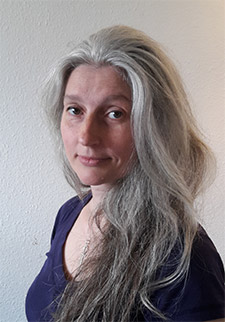 Music performance in general require precise control over sound producing movements, and rhythmic music even more so. In this talk I will present motion and timing data from different studies of musicians’ motor control.
Music performance in general require precise control over sound producing movements, and rhythmic music even more so. In this talk I will present motion and timing data from different studies of musicians’ motor control.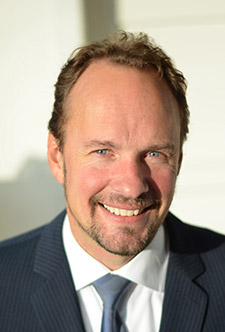 As every other musician, singers are confronted with notes of different values. In contrast to instrumentalists, however, the singer’s instrument is inside the human body, and this instrument has to be adapted to the velocity needed. This presentation analyzes the precision of phonation with respect to speed.
As every other musician, singers are confronted with notes of different values. In contrast to instrumentalists, however, the singer’s instrument is inside the human body, and this instrument has to be adapted to the velocity needed. This presentation analyzes the precision of phonation with respect to speed.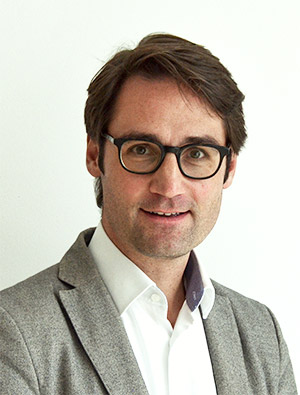 Performing ensemble music from a prescribed structure, such as a notated score, requires the ensemble members to adapt their individual understanding to that of the others during rehearsal or performance, in order to come up with a cohesive group performance. This talk will present findings from empirical studies on music ensembles at our motion capture lab at mdw.
Performing ensemble music from a prescribed structure, such as a notated score, requires the ensemble members to adapt their individual understanding to that of the others during rehearsal or performance, in order to come up with a cohesive group performance. This talk will present findings from empirical studies on music ensembles at our motion capture lab at mdw.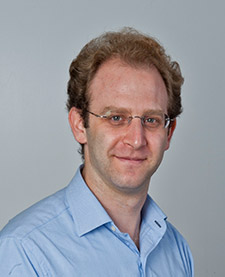 Realtime synchronized recording of muscle activity (EMG), compensation movements (3D-video), as well as the consideration of subjectively perceived effort (BORG) while playing the violin provides the scientific basis for formulating recommendations for a physiologically favorable instrument position.
Realtime synchronized recording of muscle activity (EMG), compensation movements (3D-video), as well as the consideration of subjectively perceived effort (BORG) while playing the violin provides the scientific basis for formulating recommendations for a physiologically favorable instrument position.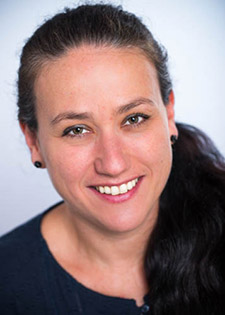 In this talk, musical and other kinds of imagery will be discussed that can support movement, including music performance, by mental simulation. Applications in music pedagogy, as well as rhythmic imagery for movement rehabilitation will be considered.
In this talk, musical and other kinds of imagery will be discussed that can support movement, including music performance, by mental simulation. Applications in music pedagogy, as well as rhythmic imagery for movement rehabilitation will be considered. When we listen to music, we often move our body in time with the rhythmic pulse. If the movement comes easily, we are in a state that can be described as ‘in the groove.’ The coupling between music and movement depends on interactions between auditory and motor brain areas. These auditory-motor interactions might not only be crucial for the experience of groove, but also for other captivating cognitive, emotional, and social effects of music on listeners.
When we listen to music, we often move our body in time with the rhythmic pulse. If the movement comes easily, we are in a state that can be described as ‘in the groove.’ The coupling between music and movement depends on interactions between auditory and motor brain areas. These auditory-motor interactions might not only be crucial for the experience of groove, but also for other captivating cognitive, emotional, and social effects of music on listeners.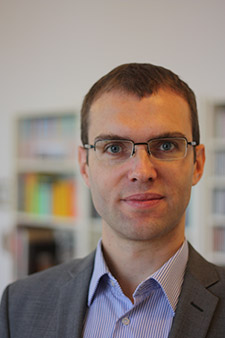 Most individuals synchronize effortlessly with rhythms, melodies or the pulse in music. In our research, we show that attending actively to different metrical levels such as half notes or eights notes affects perceived duration. Music, as a temporal art, thus changes our experience of time.
Most individuals synchronize effortlessly with rhythms, melodies or the pulse in music. In our research, we show that attending actively to different metrical levels such as half notes or eights notes affects perceived duration. Music, as a temporal art, thus changes our experience of time.




